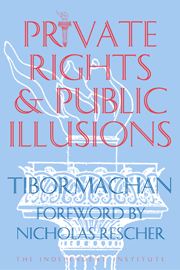As I was driving to the pharmacy not long ago, I heard a “public service” radio announcement, crafted by some California state agency that wants to frighten kids off cigarette smoking. I did not record what was said, but the substance went like this: “If you try that one cigarette, you are certain to get hooked for life. So don’t do it.”
The ad is a flat-out, bald-faced lie. It reminded me of another public service ad, aired a few years ago on television, attacking drug abuse-the one with the cracked egg being dropped into a frying pan, while the voice-over says, “This is your brain. This is your brain on drugs.” That, too, was a lie.
Not that everyone who took a puff on a cigarette managed to leave it at that-many, indeed, went on to become steady smokers. Nor again is it the case that all folks who tried drugs managed to escape getting hooked on the stuff. But many others fall into the category of “been there, done that, left it behind.” The statement “all swans are white” is made false by just one black swan. What if there are hundreds and hundreds of them?
That evening I was visiting some friends, four men and one woman. One of us is under 50, and only one is a regular smoker. Yet each of us had smoked cigarettes on and off during the last 30 years. I myself have always been a sporadic smoker, going without any cigarettes at all for months, then having one or two every other or third day, then none for six months. I recently gave them up altogether. My female friend smoked a few at 14 and then never any again. Another of the guys smoked for a while, then quit cold turkey and has never even tried it again. Same with yet another one who now smokes a cigar occasionally.
What’s the Motive?
We discussed these ads, and we couldn’t figure out why on earth these kinds of lies had gotten on the air. Surely no one could think kids were so stupid as to fall for them! One suggestion that came out of the discussion made sense to me, although at first I was hesitant to even consider it: these ads have nothing to do with actually trying to persuade kids not to start smoking. The folks who design them know that kids can tell when they are being bamboozled, and these ads clearly fall on deaf ears, given how dishonest they are. Adolescents know well that some folks who try smoking do not continue, that some do it rarely thereafter, and that others pick up the practice good and hard. They also knew a few years back that not all those who smoked pot or even harder drugs fried their brains. They are smart enough to dismiss those public service ads as nonsense, plain and simple. Hardly anyone is fooled or frightened.
So what gives, then? Well, either those who make the ads are incredibly stupid or just plain wicked. Let us dismiss the former-folks like the ones who set about to concoct these ads are not stupid. So they are, sad to say, probably wicked. That is to say, they want to seem to be doing something, so that their expensive campaign continues to be funded by desperate politicians and supported by even more desperate parents who want something, anything, done to stop kids from smoking.
Yes, this is a cynical hypothesis, but when nothing else works, perhaps cynicism must be given its proper due. Since the cost of the wickedness is probably quite high, it would be good to put a halt to this charade. It teaches kids that many of our lawmakers are frauds who are perfectly willing to perpetrate out-and-out deception just to appear useful. Like the 55 mph speed limit of a few years ago, which even the highway cops couldn’t take seriously (and which therefore encouraged people to take law less seriously), the antismoking ads will probably achieve little more than to undermine kids’ respect for government.
Which, come to think of it, will be of value, given how misguided governments have become.
Lying Government Ads
Also published in The Freeman
This article is reprinted with permission from The Freeman, March 1998. © Copyright 1998, the Foundation for Economic Education.
Tibor R. Machan (1939–2016) was a Research Fellow at the Independent Institute and the R.C. Hoiles Professor of Business Ethics and Free Enterprise at Chapman University
Contemporary PoliticsCulture and SocietyFDA and Drug RegulationGovernment and PoliticsThe Nanny State
Comments
Before posting, please read our Comment Policy.








